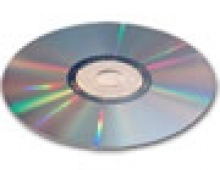
Gartner Says 2008 Should Be the Last Christmas for Retail CDs
The music industry must move away from the retail CD as its primary revenue generator before Christmas 2009, according to Gartner.
Gartner said that reliance on revenue from the sale of prerecorded CDs is hindering the music industry from fully embracing online distribution opportunities.
"By propping up the CD business, rather than fully investing in online distribution alternatives, the major labels and the larger music industry have neither succeeded in stamping out piracy nor done much to recreate the business models of the old ?record business,?" said Mike McGuire, research vice president at Gartner. "Music labels should instead emphasize 'digital first,' making all new releases and catalog issues via digital services and moving CDs to an on-demand publishing mode."
In 2007, online distribution represented about 23 percent of revenue in the U.S, and about 15 percent worldwide. Gartner said that while the music industry?s reliance on the disc worked well from 1985 though the U.S. market?s revenue peak in 2000, CD sales are now dropping rapidly in major markets worldwide and are unlikely to regain market share. As a percentage of total revenue in the U.S. market, physical media (CDs, LPs, DVD-A and so on) have gone from 91 percent of revenue in 2005 to 77 percent in 2007 and there is also evidence that physical retailers are even reducing the physical floor space dedicated to CDs.
Enabling the transition away from retail music CDs toward online distribution is now in sight, given that 77 percent of U.S. households (a total of 96 million connections) will have broadband connections by 2012. Beyond these consumers, the alternative distribution afforded by Wi-Fi-enabled notebooks and rapidly improving media-enabled mobile phones pose opportunities that provide multiple paths for marketing, promotion and distribution outside the consumer?s home.
By eliminating the cost of the CDs through a new burn-on-demand model, labels could cut out the expense of trying to anticipate demand and reduce costs associated with shipping. Songs or albums would always be distributed online first, leveraging the burgeoning social network sector as awareness and promotional tools to drive sales at online sites, and the growing number of mobile music services.
"The industry's comfort with past marketing and promotional practices centered on CD launches is ingrained and difficult to give up. But the reality is that digital natives and immigrants are more interested in convenience and choice," said Mr. McGuire. "This is not to say that the physical CD would disappear altogether. Rather, it could shift to being a promotional tool to be sold or given away at concerts for example."
As well as the move toward 'digital first,' Gartner recommends that labels focus on the limitless ways digital content (that is, songs, videos, lyrics and communiqu?s) can be delivered, consumed and monetized. Gartner also advocates the development of comprehensive and flexible licensing regimes to fully optimize online services.
"By propping up the CD business, rather than fully investing in online distribution alternatives, the major labels and the larger music industry have neither succeeded in stamping out piracy nor done much to recreate the business models of the old ?record business,?" said Mike McGuire, research vice president at Gartner. "Music labels should instead emphasize 'digital first,' making all new releases and catalog issues via digital services and moving CDs to an on-demand publishing mode."
In 2007, online distribution represented about 23 percent of revenue in the U.S, and about 15 percent worldwide. Gartner said that while the music industry?s reliance on the disc worked well from 1985 though the U.S. market?s revenue peak in 2000, CD sales are now dropping rapidly in major markets worldwide and are unlikely to regain market share. As a percentage of total revenue in the U.S. market, physical media (CDs, LPs, DVD-A and so on) have gone from 91 percent of revenue in 2005 to 77 percent in 2007 and there is also evidence that physical retailers are even reducing the physical floor space dedicated to CDs.
Enabling the transition away from retail music CDs toward online distribution is now in sight, given that 77 percent of U.S. households (a total of 96 million connections) will have broadband connections by 2012. Beyond these consumers, the alternative distribution afforded by Wi-Fi-enabled notebooks and rapidly improving media-enabled mobile phones pose opportunities that provide multiple paths for marketing, promotion and distribution outside the consumer?s home.
By eliminating the cost of the CDs through a new burn-on-demand model, labels could cut out the expense of trying to anticipate demand and reduce costs associated with shipping. Songs or albums would always be distributed online first, leveraging the burgeoning social network sector as awareness and promotional tools to drive sales at online sites, and the growing number of mobile music services.
"The industry's comfort with past marketing and promotional practices centered on CD launches is ingrained and difficult to give up. But the reality is that digital natives and immigrants are more interested in convenience and choice," said Mr. McGuire. "This is not to say that the physical CD would disappear altogether. Rather, it could shift to being a promotional tool to be sold or given away at concerts for example."
As well as the move toward 'digital first,' Gartner recommends that labels focus on the limitless ways digital content (that is, songs, videos, lyrics and communiqu?s) can be delivered, consumed and monetized. Gartner also advocates the development of comprehensive and flexible licensing regimes to fully optimize online services.




















